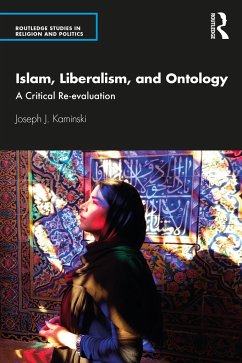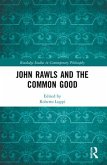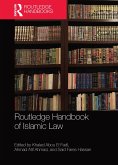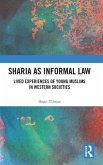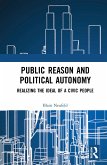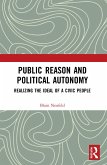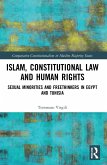This book offers comparative ontologies of both Islam and liberalism as discourses more broadly construed.
The author argues that, despite recent efforts to speak of overlapping consensuses and discursive congruence, the fundamental categories that constitute "Islam" and "Liberalism" remain very different, and that these differences should be taken seriously. Thus far, no recent scholarly works have explicitly or meticulously broken down where these differences lie. The author rigorously explores questions related to rights, moral epistemologies, the role of religion in the public sphere, and more general approaches to legal discourse, via primary and canonical sources constitutive of both Islam and liberalism. He then goes on to articulate why communitarian modes of thought are better suited for engaging with Islam and contemporary socio-political modes of organization than liberalism is.
This book will be of great interest to students and scholars of politics and international relations, Islam, liberalism, and communitarianism.
The author argues that, despite recent efforts to speak of overlapping consensuses and discursive congruence, the fundamental categories that constitute "Islam" and "Liberalism" remain very different, and that these differences should be taken seriously. Thus far, no recent scholarly works have explicitly or meticulously broken down where these differences lie. The author rigorously explores questions related to rights, moral epistemologies, the role of religion in the public sphere, and more general approaches to legal discourse, via primary and canonical sources constitutive of both Islam and liberalism. He then goes on to articulate why communitarian modes of thought are better suited for engaging with Islam and contemporary socio-political modes of organization than liberalism is.
This book will be of great interest to students and scholars of politics and international relations, Islam, liberalism, and communitarianism.
"In this engaging book, Kaminski argues that there are serious ontological incompatibilities between Islam and liberalism and that communitarian modes of thought are more consistent with the Islamic worldview. The author competently opens up new doors of scholarly inquiry regarding one of the most important topics confronting the Muslim world today. This book is necessary reading for anyone interested in the issue of Islam and the role of religion in the public sphere, and it warrants a serious audience and thoughtful debate." - Khaled Abou El Fadl, Distinguished Professor of Law at the UCLA School of Law, USA
"Kaminski's reflective engagement with the fundamental ontological assumptions and claims of both Islam and liberalism as discourses offers the reader both a critical and impartial take on subject. In doing so, Kaminski provides both specialists and general readers alike the benefit of a reflective lens that is successful offering a rethinking of the relationship between Islam and Liberalism." - Dalia Fahmy, Associate Professor of Political Science at Long Island University, USA
"Kaminski's reflective engagement with the fundamental ontological assumptions and claims of both Islam and liberalism as discourses offers the reader both a critical and impartial take on subject. In doing so, Kaminski provides both specialists and general readers alike the benefit of a reflective lens that is successful offering a rethinking of the relationship between Islam and Liberalism." - Dalia Fahmy, Associate Professor of Political Science at Long Island University, USA

